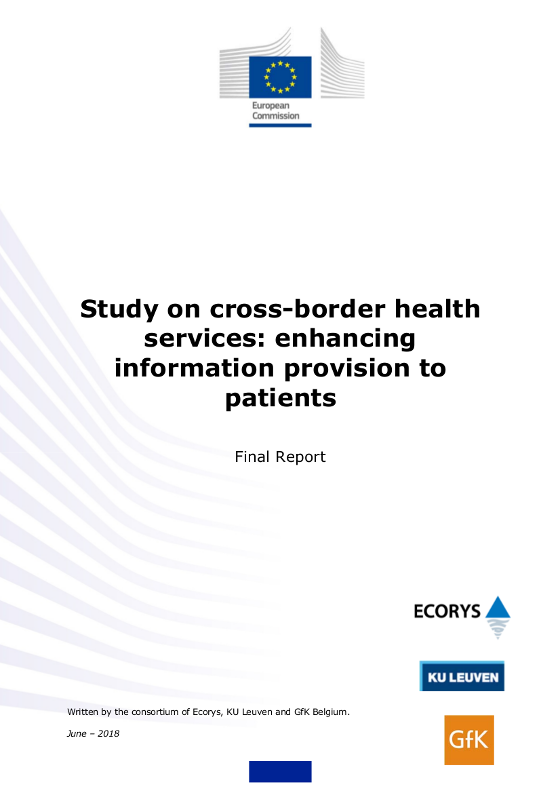 The overall objective of this study was to propose recommendations for improving the current level of information provision to patients by National Contact Points (NCPs). The research methodology used in this study consisted of: literature review, analysis of legal texts, website analysis, pseudo-patient investigation, NCP and patient surveys, bilateral exchanges and a workshop with NCPs. Core findings of the study are:
The overall objective of this study was to propose recommendations for improving the current level of information provision to patients by National Contact Points (NCPs). The research methodology used in this study consisted of: literature review, analysis of legal texts, website analysis, pseudo-patient investigation, NCP and patient surveys, bilateral exchanges and a workshop with NCPs. Core findings of the study are:
- There is a general lack of awareness of the existence of the Directive 2011/24/EU and NCPs. Almost five years after the implementation of the Directive, patients awareness on their rights and possibilities to access health services abroad and on the existence of NCPs is still low;
- The information provision through NCP websites was adequate, but there remains a need to further improve the websites. In particular, information on patient's rights, quality and safety standards, and reimbursement of cross-border healthcare costs require additional consideration and improvement;
- There are big organisational differences between NCPs regarding the number of NCPs in each Member State, the institution hosting the NCP, funding and staff, and organisational handling of patients. Significant improvements have been achieved since the implementation of the Directive, however there is still room for further improvement;
- Information provision for incoming patients is in general less complete compared to that for outgoing patients;
- Overall, there is still ample room for improvement in NCP practices. There is especially great potential for NCPs to learn from each other and help each other improve their information provision to patients in the context of cross-border healthcare.
Download: Study on Cross-Border Health Services: Enhancing Information Provision to Patients (1.385 KB).
Download from eHealthNews.eu: Study on Cross-Border Health Services: Enhancing Information Provision to Patients (1.385 KB).